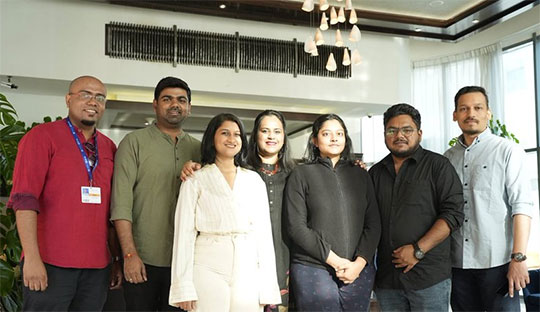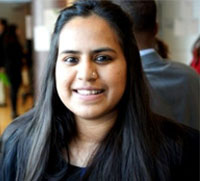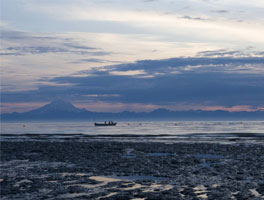 |
Dear readers,
Welcome to the Climate Weekly newsletter by the Centre for Science and Environment’s Climate Change programme and Down to Earth.
We write to you just having returned from COP 28 last week in Dubai, where we spent two weeks observing the negotiations and capturing the conversation.
COP 28 concluded with the adoption of the outcome on the first Global Stocktake (GST), an assessment of progress on the goals of the Paris Agreement. A part of a package of accepted decisions titled ‘The UAE Consensus’, the GST recognises the need for deep, rapid and sustained reductions in greenhouse gas emissions in line with 1.5C pathways. It therefore calls on countries to triple renewable energy capacity globally, phase down unabated coal power, and transition away from fossil fuels in energy systems. This recognition of the role played by fossil fuels is historic and is occurring for the first time in over 30 years of climate negotiations. Says Sunita Narain, Director-General of CSE, in our press release: “The inclusion of fossil fuels in the GST is an important starting point for the world to now discuss the road ahead, which must be based on funding and fairness.”
The GST document has its flaws – it has plenty of loopholes that fossil fuel producing entities can exploit to expand production. Many argue that inscribing in text the role of fossil fuels, 30 years after climate negotiations commenced, and when robust science has loudly proclaimed their harm for years, is borderline comical. We do not disagree with those viewpoints. But COP summits are a unique space where climate science and rhetoric meet real geopolitics and complex economic dynamics of a heterogenous set of 200 countries of the world. And the COP is a consensus-based process, where each country has to agree on every word in the final decision text. From that perspective, given the number of developing and developed countries who depend on and profit from fossil fuel revenues, this is a milestone achievement that must be given its due.
COP 28 also saw the operationalisation of the Loss and Damage Fund, a step that we welcomed. It is crucial that the Fund gets replenished periodically with new and additional grant-based finance from developed countries in line with the needs of developing countries, and without conditionalities. There was also agreement on a much overdue Global Goal on Adaptation.
Our delegation from CSE-DTE tracked issues ranging from mitigation, adaptation, loss and damage, and carbon markets, to broader topics such as industrial decarbonization and urban climate action.
Left to right: Joel Michael (DTE), Parth Kumar (CSE), Rohini Krishnamurthy (DTE), Avantika Goswami (CSE), Tamanna Sengupta (CSE), Akshit Sangomla (DTE), Trishant Dev (CSE) |
|
 |
| |
|
|
| |
 |
|
| |
|
|
| |
We were grateful for the opportunity to listen in on negotiations and observe climate politics play out up close, and will continue the hard work of analysis, commentary, and advocacy on climate policy issues relevant for the Global South through the coming year. |
|
| |
 |
|
| |
 |
 |
| |
By - Avantika Goswami
Climate Change, CSE
|
| |
|
 |
|
|
| |
 |
|
| |
| EXTREME WEATHER TRACKER |
| |
Arctic Report Card 2023: Wildfires to melting sea ice, warmest summer on record had cascading impacts across Arctic, 14 December 2023
|
 |
 |
|
|
| |
 |
|
| |
 |
 |
Climate change: If warming approaches 2°C, a trickle of extinctions will become a flood, 12 December 2023
|
|
|
| |
|
|
| |
|
|
| |
 |
|
| |
|
|
| |
|
|
| |
|
|
| |
 |
|
| |
CLIMATE NEWS | SCIENCE| IMPACTS| POLITICS |
|
| |
 |
|
| |
|
|
| |
 |
|
| |
|
|
| |
 |
|
| |
|
|
| |
 |
|
| |
|
|
| |
 |
|
| |
|
|
| |
 |
|
| |
|
|
| |
 |
|
| |
|
|
| |
 |
|
| |
|
|
| |
 |
|
| |
|
|
| |
 |
|
| |
|
|
| |
 |
|
| |
|
|
| |
 |
|
| |
|
|
| |
 |
|
| |
|
|
| |
 |
|
| |
|
|
| |
 |
|
| |
|
|
| |
 |
|
| |
|
|
| |
 |
|
| |
|
|
| |
 |
|
| |
|
|
| |
 |
|
| |
|
|
| |
 |
|
| |
|
|
| |
 |
|
| |
|
|
| |
 |
|
| |
|
|
| |
 |
|
| |
|
|
| |
 |
|
| |
|
|
| |
 |
|
| |
|
|
| |
 |
|
| |
|
|
| |
 |
|
| |
|
|
| |
 |
|
| |
|
|
| |
 |
|
| |
|
|
| |
 |
|
| |
 |
|
| |
|
|
| |
|
|
| |
| |
|
|
Simply Put:
COP28 ends |
|
Simply Put:
Head in the Dubai sand |
| |
|
|
|
|
|
|
|
|
| |
|
|